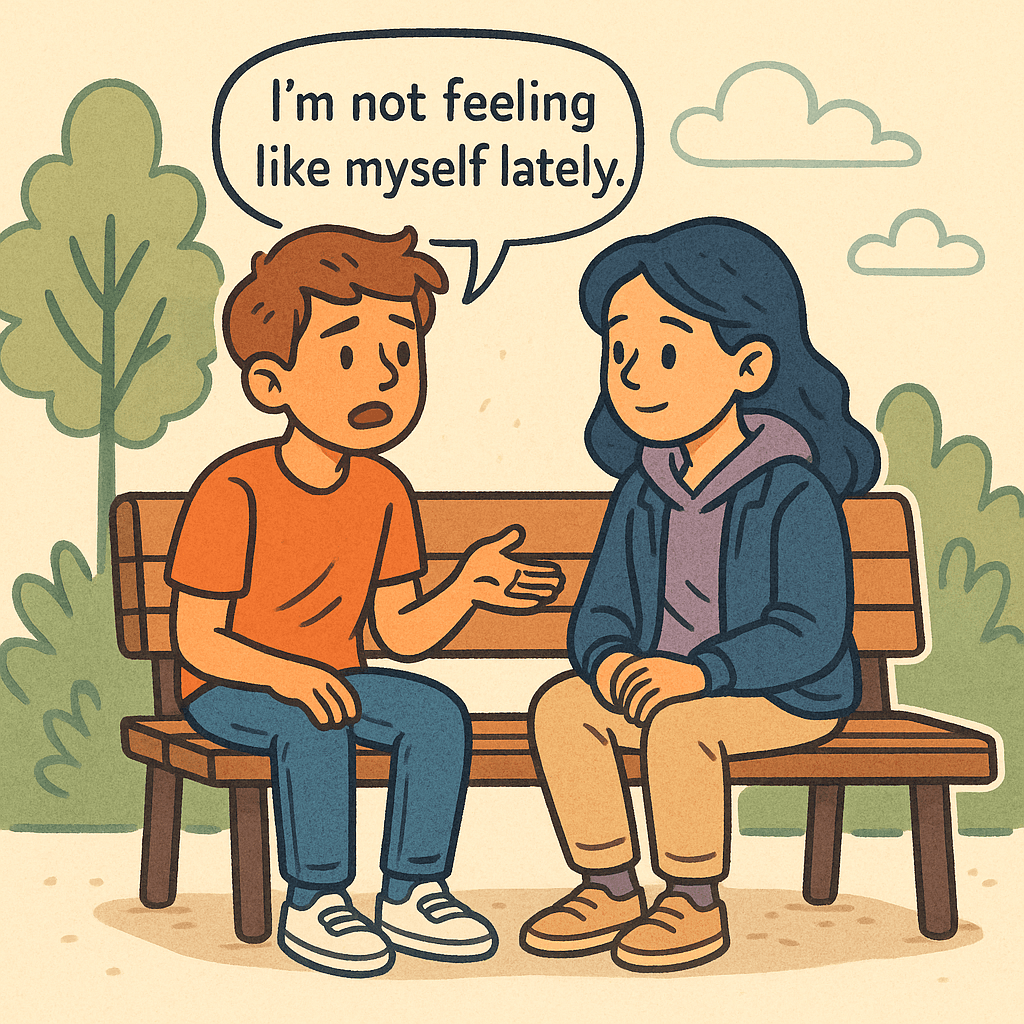
How to Talk About Mental Health with Friends
Let’s be honest. Talking about mental health is hard. Whether you’re the one struggling or the one trying to support someone else, it can feel awkward, heavy, or just plain risky.
But silence? Silence makes it worse.
When no one talks about what they’re going through, everyone starts thinking they’re the only one. That isolation feeds shame, and shame keeps people stuck.
So let’s change that. Let’s normalize real conversations about mental health, starting with your friends.
If You’re Struggling:
You don’t need a perfect script. You just need a moment of honesty.
Try starting with:
“I haven’t felt like myself lately.”
“I’m dealing with some heavy stuff. Can I talk to you about it?”
“I’m not okay right now, and I don’t want to keep pretending I am.”
It’s okay to feel nervous or unsure. Most people have no idea how to talk about mental health because we were never taught how. But saying something is better than saying nothing. You might be surprised how quickly the walls come down once you open that door.
If you’re scared of being judged, you’re not alone. Culture, family background, and past experiences all play a role in how safe it feels to speak up. But every time someone breaks the silence, it makes it easier for the next person to do the same.
If a Friend Opens Up to You:
You don’t need to fix it. You just need to show up.
Here’s what helps:
“Thanks for telling me. That takes guts.”
“That sounds really hard. I’m here for you.”
“Do you want to talk more, or just hang out and be together for a while?”
Avoid advice unless they ask for it. Don’t try to make it about you. Just be present and let them lead the way.
And if your friend says something that makes you worried about their safety—do not keep that to yourself. That’s not betrayal, that’s protection. Let an adult, a parent, or a therapist step in.
For Parents:
Encourage your teen to talk about emotions without fear of judgment. Listen first, ask later. Avoid the urge to fix or minimize. Just let them know, “You can come to me, no matter what.”
The more we talk about mental health, the easier it gets.
Speak up. Listen well. Keep the door open.
You never know how much one conversation might change.

